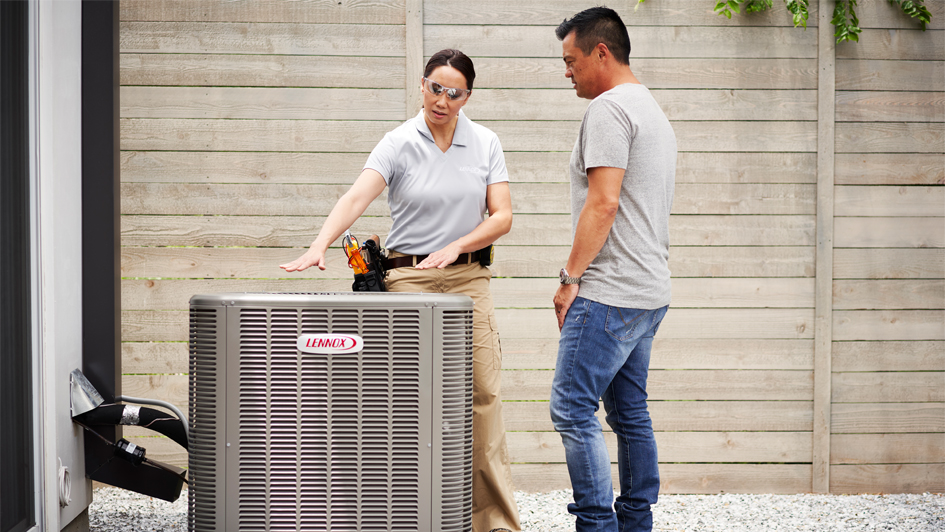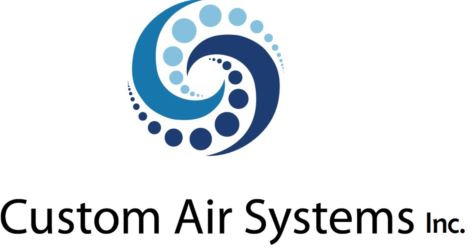
Finding the correct HVAC system size for your home is vital. It affects your home enjoyment and your power expenses. In this HVAC sizing guide, the experts at Custom Air Systems Inc will explain how to select the best size of heating and cooling system for your home, what factors they take into account and why selecting the most suitable size HVAC is so important to your satisfaction.
What Impact Does HVAC System Size Make on Home Comfort and Efficiency
Proper HVAC size varies for every home. Your HVAC system needs adequate heating and cooling capacity to make your entire home comfortable. It shouldn't struggle to keep up in extremely scorching or frigid weather. However, an HVAC system that's too large is inefficient, wastes money and can create issues that make your home less agreeable.
Crucial Features Pros Consider for HVAC Sizing in Port St. Lucie, FL
To select the appropriate HVAC system size for a home, the HVAC installation specialists at Custom Air Systems Inc carry out a Manual J load calculation to determine how many British Thermal Units (BTUs) are required to heat and cool and the home. A Manual J calculation evaluates multiple elements, such as:
- Square footage: The size of the home is arguably the most significant factor in selecting the size of your HVAC system. How much space will your new HVAC system be required to heat and cool?
- Amount of insulation: A well- insulated home retains the indoor temperature more efficiently, which can influence how much heating and cooling power you need.
- Climate: The local climate in Port St. Lucie, FL, plays an important role in identifying the appropriate size HVAC. Homes in sunnier climates may require a system with an increased cooling capacity, while chillier regions may demand less.
- Window size: Windows can be a major source of energy loss. The number, size, type of glass used, and whether they’re single paned or double paned can greatly impact heating and cooling requirements.
- Sun and shade: A home that receives a considerable sunlight will automatically be warmer than one that doesn't, which influences central air sizing. Home placement in relation to prevailing winds and number of nearby shade trees also impact the correct HVAC size.
Most Common DIY HVAC Size Mistakes
A common mistake homeowners make when choosing the size of home HVAC system is to rely solely on square footage. While the square footage of your home has a significant impact on what size HVAC you need, other elements also influence how much heating and cooling capacity is necessary to keep your home pleasant.
Another typical mistake is not engaging a professional. It's vital to have an experienced HVAC technician carry out a Manual J calculation, which takes all the essential aspects of your home into consideration to find the correct HVAC size.
What Difference Does HVAC System Size Make?
An inadequately sized system can lead to comfort problems and increase expenses. Here's a deep dive into the pitfalls of a wrong-sized HVAC:
Undersized HVAC system problems:
- Less longevity and breakdowns: HVAC systems that don't have enough power often run constantly to try to heat or cool a home, leading to excessive wear and tear. This can cause breakdowns and even require premature HVAC replacement.
- An unpleasant home: Small HVAC systems lack the necessary capacity to heat and cool your entire residence, which can cause hot, stuffy rooms or areas of your home that are uncomfortably cold.
- Higher energy expenses: An underpowered HVAC system that runs continuously trying to keep up uses more energy, running up your monthly power bills and costing you money. A properly sized and energy-efficient HVAC system uses less power and helps to reduce your monthly bills.
Issues from oversized HVAC systems
- Unnecessary expenses: Larger HVAC systems tend to cost more money, so investing in more heating and cooling capacity than your home needs is a waste of money.
- Shorter system life and breakdowns: HVAC systems that are too big often start and stop frequently, referred to as short cycling. This can lead to wear and tear on your machine, shortening its service life or requiring HVAC repair.
- Increased humidity: An HVAC system should regulate indoor humidity, but an oversized HVAC system may lack adequate runtime to accomplish that task. This can lead to indoor air quality issues, such as mold growth.
Get Help Replacing or Sizing Your Home HVAC System from Custom Air Systems Inc
Now that you understand some of the things that affect what HVAC system size is right for you, it's time to choose a new heating and cooling system. Custom Air Systems Inc is here to help.
We’ll evaluate your home and give you a free, no-obligation estimate for HVAC installation. We’ll assess your home to find the most suitable HVAC system size for you, so you can have a comfortable home every day of the year.
Call 772-677-8981 today to book your free estimate for HVAC installation in Port St. Lucie, FL.




